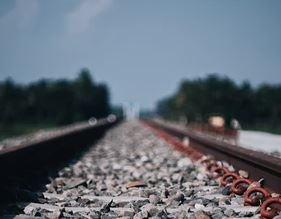
Waiting for a rail review to conclude can take as long as the wait for the trains to arrive. In 2019 we were expecting change to our daily commute with more integration, so things were sorted out quicker when things went wrong. And after several false dawns, Covid hit, and recommendations in an unpublished review, started to be implemented discretely and new ideas were created for a still unpublished Williams report.
The public’s appetite for travelling by rail, is currently low, but just last week some passengers received a boost with a brand-new rail card that gives them further discounts on their journeys. The Veterans railcard which is priced at £21 a year, will give an estimated 830,000 people access to discounted rail journeys and will be available to anyone who has served at least one day in the armed forces or merchant mariners. It will also give the cardholder and a companion, a third off most rail fares and 60% off for up to four children aged five to 15, who are travelling with the holder.
In doing so this is adding another set of discounts to an already complex fare structure, something that makes our battle to find the best value journey even more difficult. But it also begs the question, who should be paying for the railways? In the end there are only two direct income streams. Ticket revenue (and) or the taxpayer.
The veteran’s card is not the first discount scheme to be launched in recent years. Just two years ago a 16 to18-year-old rail card was introduced and, for decades we have given, all railway workers substantial discounts for their trips. But most of the regular users a left bewildered and think that it is now time for us all to receive better pricing for our tickets and one that is far less complex.
During the last couple of decades, policymakers have made the conscious decision for the rail industry to be self-sufficient – the fare box must pay. And until the Covid crisis the exchequer subsidised railways by one of the lowest rates in Europe. The businesses who operate our services have received less than 3 per cent return rate and some far less.
Improvements to the rail network are starting to be seen in all corners of the country. There are more new trains arriving on the network each week, 40 percent of trains are now less than five years old, so today we have some of the newest fleets in the world. But the industry lacks good communication especially when things go wrong, which is why the Williams review was set up two years ago. While years of underinvestment in the days of British Rail are rightly being reversed by policy makers with the help of the private sector, most of those costs are being passed directly to commuters. It is no wonder passengers think that they pay far too much for their journeys and also given the annual RPI plus one, ticket fare increases. The comparative cost of driving a car or flying by aeroplane has fallen while fares increased.
Per passenger, rail remains one of the most efficient and is less polluting for medium and long-distance travel in the UK. Private vehicles driven by fossil fuels have received frozen pump taxes for most of the years since 2010. But if we are really going to build back better, now is the time to make rail more affordable by increasing the subsidies on all rail tickets through an increase in tax on petrol and diesel. It will help reduce needless journeys on our roads, and make driving more enjoyable with fewer traffic jams. At the same time it will improve the air that we breath. But this change is only possible only if the alternatives to old technology cars are available and affordable. Surely the cost of adding pennies to a litre of fuel would be a price worth paying to deliver a bigger win for all commuters, not just veterans.
This article first appeared in the Transport Times.
